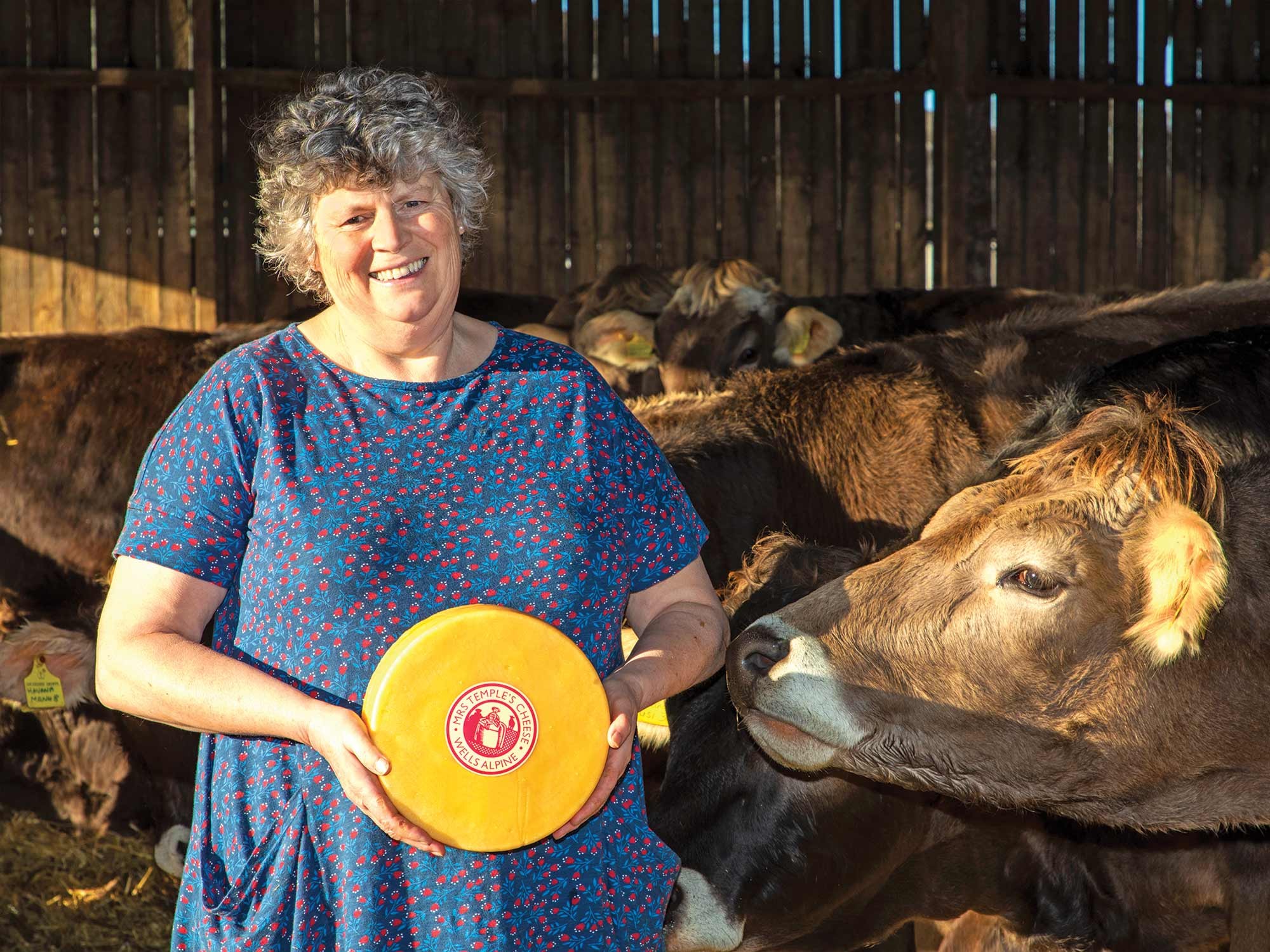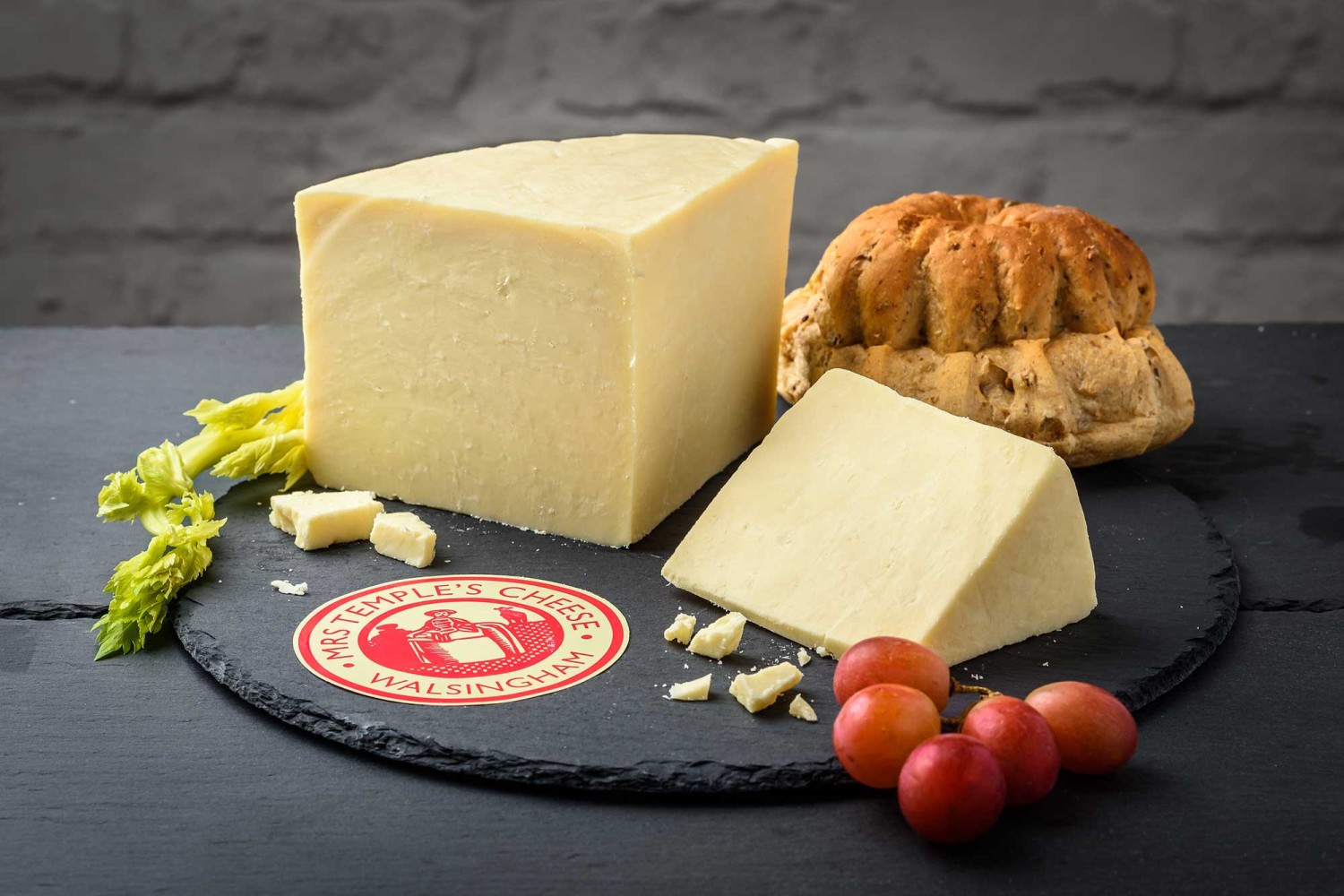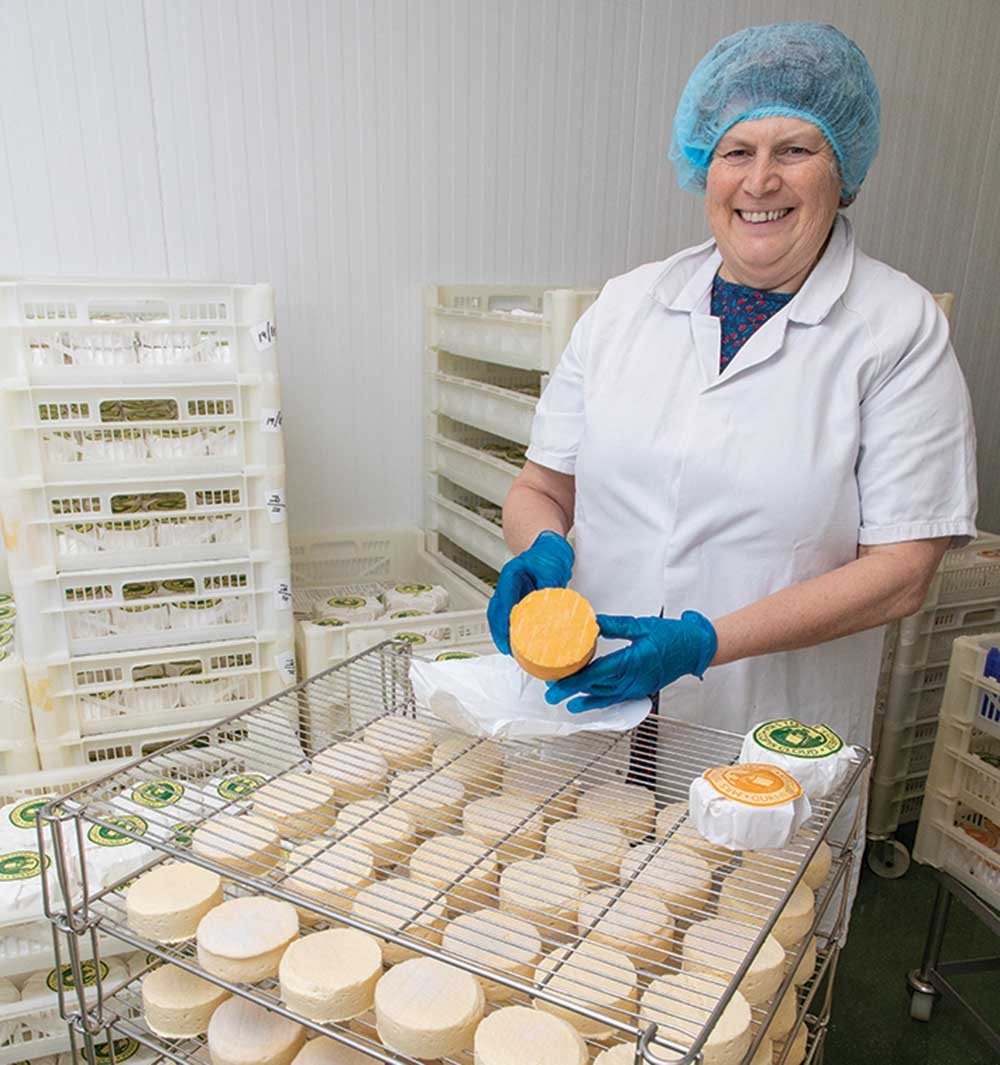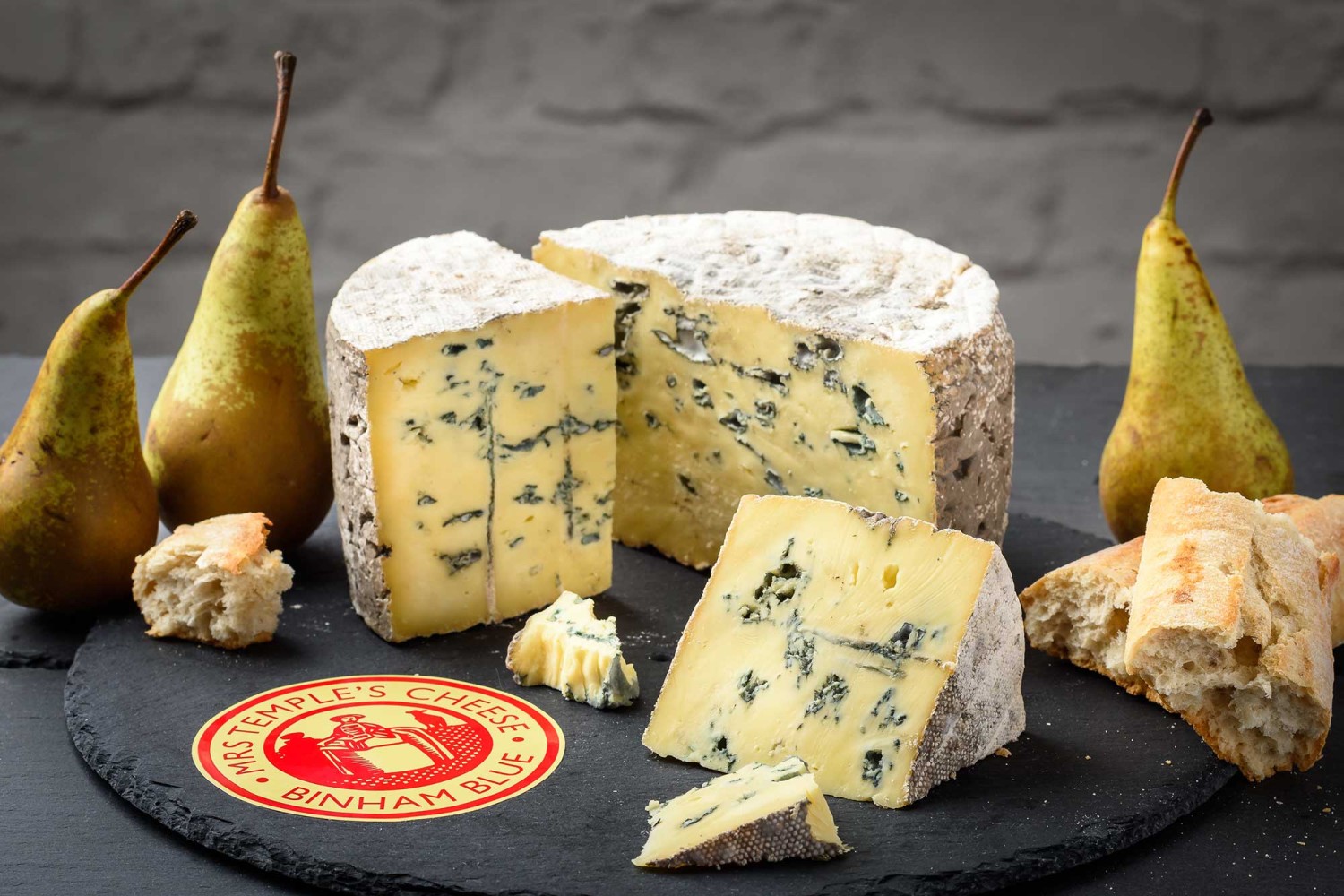
Putting Norfolk on the country’s cheese map
Catherine Temple’s cheese-making career started in her kitchen with two plastic buckets, a gallon of milk and a library book. Now, her delicious cheeses are some of Norfolk’s best known products
Catherine Temple is a busy woman. As well as being the brains behind Mrs Temple’s Cheeses, which produces such famous artisan cheeses as Binham Blue and Copys Cloud, she’s also a qualified pharmacist, lecturer, trainer of nursing staff, and a much sought-after speaker.
Cheese was probably the last thing on her mind when she went with her husband to live abroad, first to India, where she worked as a pharmacist in a country mission hospital, and then to Malawi, where she worked at the Tea Research Foundation of Central Africa.
As the resident chemist, she researched the colour and flavour of tea, and published her research to gain a PhD from the University of Surrey.
“I’m not a doctor of medicine or pharmacy,” she says with a twinkle in her eye. “I’m actually a doctor of why tea is brown!”

Catherine came from a farming background, her grandparents owning a small dairy farm in the Vale of Belvoir (on the borders of Leicestershire, Nottinghamshire and Lincolnshire) where the milk they produced was used to make Stilton cheese. Her mother also made cheese in the farmhouse kitchen – but it was just for family consumption.
Catherine went on to attend the University of Bradford, and was sent to Norfolk as part of her pharmacy apprenticeship, where she met her husband Stephen. After living abroad for several years, they returned to the UK in 1998 and settled in Norfolk. Stephen’s parents had bought the farm where they continue to live today in 1956, and the couple bought another 300 acres to add to the original land.
Farm incomes were very pressured at the time and markets were starting to change, so Catherine cast around for an opportunity to improve their income. Although she was also working as a pharmacist locum around Norfolk, she wanted to find a way of processing the milk they were producing on their dairy farm, and realised that cheese might be a viable option.
Nobody was making cheese locally apart from a vicar’s wife who had four goats
“Nobody was making cheese locally apart from a vicar’s wife who had four goats,” she says, “so there wasn’t a lot of competition!” At the same time she was writing up her research on tea and was commuting back and forth to the British Library – where she started looking at books on specialist cheese making. She learned that British cheesemakers were having a conference the following day, and travelled to Shrewsbury to meet some cheese makers.
“I began to formulate a plan and put it into action, visiting other cheese makers and collecting equipment,” says Catherine. “After about two years production began, initially with Wighton, which was based on a Cambridgeshire white cheese recipe, similar to a traditional Fenland cheese.”
This first cheese, Wighton, was similar to feta, and was swiftly followed by Melton, a Norfolk melting cheese which was like a mozzarella.
“I started off with just these two cheeses,” explains Catherine. “I didn’t need any fancy equipment – in fact, all I had was two buckets and a stainless steel knife!”
Following the negative publicity generated by the cattle diseases prevalent at the time, Catherine decided to start pasteurising her cheeses, a practice she continues to do today.
Catherine began by selling her cheeses at local farmers’ markets as a way of spreading the word about her products. As her sales grew, she began to think about reducing food miles, and decided somewhat cheekily to ask the the owners of the refrigerated vans driving past her cottage whether they’d distribute her cheeses to local pubs and restaurants.
“You never know until you ask,” she says, “and I’ve still got three customers from those days who are my biggest distributors!”
Catherine’s cheeses are all made with milk from her beautiful Brown Swiss cows, who live contentedly on the farm. Although Catherine and Stephen started with Friesians, they switched to Brown Swiss cows, as they live happily on a Norfolk diet of grass, maize and lucerne clover, all of which are grown on their farm.
She began her business by using 90 litres of milk on alternate Wednesdays and has built it up to four staff processing 2,600 litres three days a week (five days in the run up to Christmas).
Last year they made no less than 34 tons of cheeses, 21 of which were Binham Blue, by far Catherine’s best seller. She now produces seven different cheeses, from Binham Blue and the soft and creamy Copys Cloud to the delicious hard and mature Walsingham.
“We’re so gratified with how our products have been adopted into the food culture of Norfolk,” says Catherine, “and how our rapid growth and success have been linked with all the great eateries and farm shops along the Norfolk coast. We couldn’t really ask for more.”


